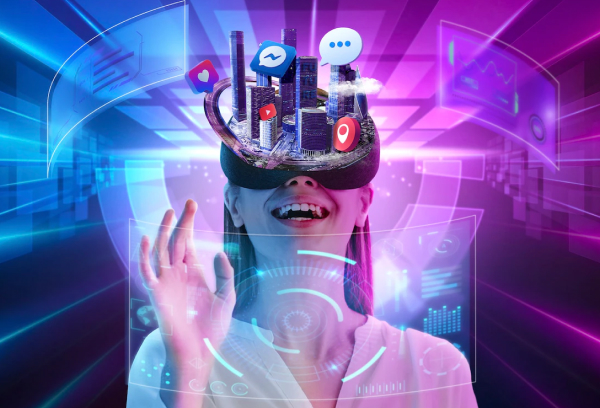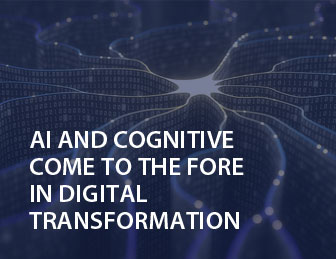Some technologies cause a stir. Today, two of these technologies are Metaverses and Web 3.0. Except for metaverse developers and seasoned blockchain development companies, most people think that both of them are one and the same. This belief, however, is far from the truth. A metaverse and Web 3.0 are closely interlinked, but they are not the same. Confused? Here, we help you understand the difference between these two technologies.
What Is Web 3.0?
Also known as Web3, Web 3.0 is aimed at decentralizing the internet. That is how this tech is slated to put the power of content creation completely in the hands of creators. Moreover, this technology will eliminate the concept of having a few platform owners.
Even now, the internet is not technically owned by anyone. But the fact is that a few technology majors exert an incredible amount of influence on the internet. And that is what Web 3.0 will thwart once it is widely adopted. In simple words, Web 3.0 uses the concept of decentralization to democratize the internet. This piece of technology is giving control to the users of the internet.
Web 3.0 comprises a range of components, including semantic web, AI, 3D graphics, high-speed connectivity, spatial web, blockchain, and crypto money. Web 3.0 uses different and sophisticated decentralized protocols to democratize data ownership. Because of democratizing data ownership, Web 3.0 hopes to address some key shortcomings that are commonplace in today’s digital landscape.
Moreover, Web 3.0, in its fully realized state, will be completely decentralized. Being decentralized means that the users will step into a permissionless ecosystem. That means Web 3.0 throttles internet providers’ capability to levy terms and conditions to use the web.
What Is A Metaverse?
In 2021, Facebook changed its name to Meta. However, Facebook is not an end-to-end metaverse yet—it is on the road to building a unified metaverse, though. That means Facebook is a participant of a metaverse. A metaverse is a collective virtual space that is vendor-independent and device-agnostic. This space is virtually enhanced to help metaverse users create a brand-new digital reality.
Moreover, metaverses can even have their dedicated virtual economies. These economies are driven by digital currencies and unique non-fungible tokens or NFTs. Thanks to metaverses, entertainment, medical, and event companies can embark on the journey toward delivering immersive and connected experiences.
The best part is that a well-built metaverse will not want its users or participants to bring their infrastructures. Instead, a metaverse will offer a robust framework to help businesses host their virtual events. That way, metaverse events provide a brand with an opportunity to bring its integrated offerings. On the other hand, retail players entering a metaverse means creating and delivering engaging shopping experiences. That means a metaverse is like Web3’s spatial web. The only thing is that a metaverse will be more inclined toward creating and delivering superior experiences powered by 3D graphics, real-world imaging, etc. That means a metaverse will help a user walk through the internet and touch the elements present on the web.
Metaverse Vs. Web 3.0: Decoding The Difference
Definition:
A metaverse successfully combines digitally improved physical reality with a virtual ecosystem.
A Web 3.0 deployment is a new-generation internet system that aims at establishing a decentralized online world. Web 3.0 enables users to control all the assets on the decentralized internet without the need for intermediaries.
Target Markets:
The target market of a metaverse includes facilities governed by augmented reality (AR), virtual reality (VR), and extended reality (XR).
Web 3.0’s target market includes blockchain-powered peer-to-peer facilities.
Applications Scope:
The application areas of a metaverse range from retail to education and entertainment. And more and more metaverse application areas are emerging rapidly.
The scope of applications of Web 3.0 is wide enough to encompass the entire web.
Applications:
The real-world applications of a metaverse include virtual gaming, 3D training, health surgery, and social events.
Web 3.0’s real-world applications include a robust, permissionless, and democratic crypto world. Generally, Web 3.0 will work with systems that will not need any market monopoly.
Underlying Tech:
The technologies underpinning a metaverse include high-speed connectivity frameworks, immersive interfaces, and decentralization stacks.
The underlying technical framework of Web 3.0 is built on blockchain, NFTs, decentralized finance or DeFi, and decentralized autonomous organizations or DAOs.
Outcome:
A metaverse will dematerialize and digitize different physical entities.
A Web 3.0 implementation will help regulate the internet and make it more user-governed.
Technical Details:
A metaverse will be enabled by Wi-Fi 6, 6G, geo-mapping, VR, XR, asset markets, NFTs, creator economy etc.
Web 3.0 implementations are enabled by DAOs, AI, and blockchain.
Interested In Setting Up Your Own Metaverse Or Web 3.0 Deployment?
Businesses want to step into their own metaverses and unlock Web 3.0 possibilities. However, they lack the expertise to do that. The way forward lies in joining hands with a digital partner that can help your business embrace next-gen tech stacks, maximize value, and improve outcomes. We are such a digital partner. We help enterprises and startups adopt metaverses or build their own Web 3.0 iterations so that they can improve the time to value.
As a metaverse development company, we have deep capabilities in helping businesses unleash the power of metaverses. We help businesses design metaverses that help them improve customer experience, digitize workflows, and boost engagement.
But building exciting metaverses that reshape possibilities is just one aspect of what we do. We are a trusted blockchain development company too. Our growing partner ecosystem includes industry leaders—MultiChain, Hedera, Hyperledger, etc.—highlighting our capability to deploy decentralized blockchains for businesses at an incredible velocity.
Connect with our team of metaverse developers and blockchain specialists today. That way, you will take the first step toward building a market-ready decentralized and immersive ecosystem. And this ecosystem will be your business’s gateway to enabling digital transformation.


 Vishal
Vishal



